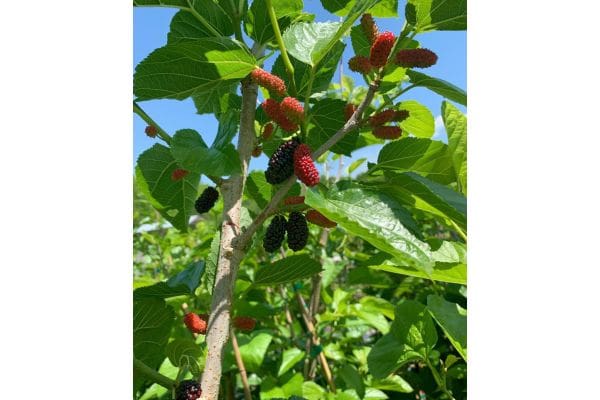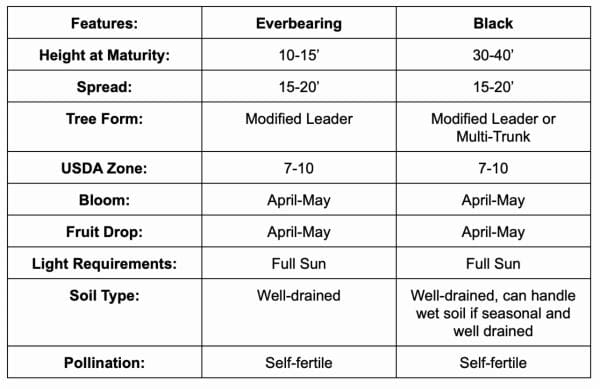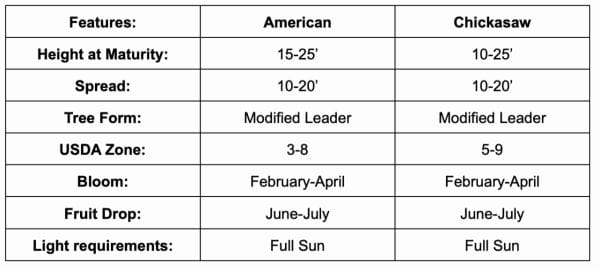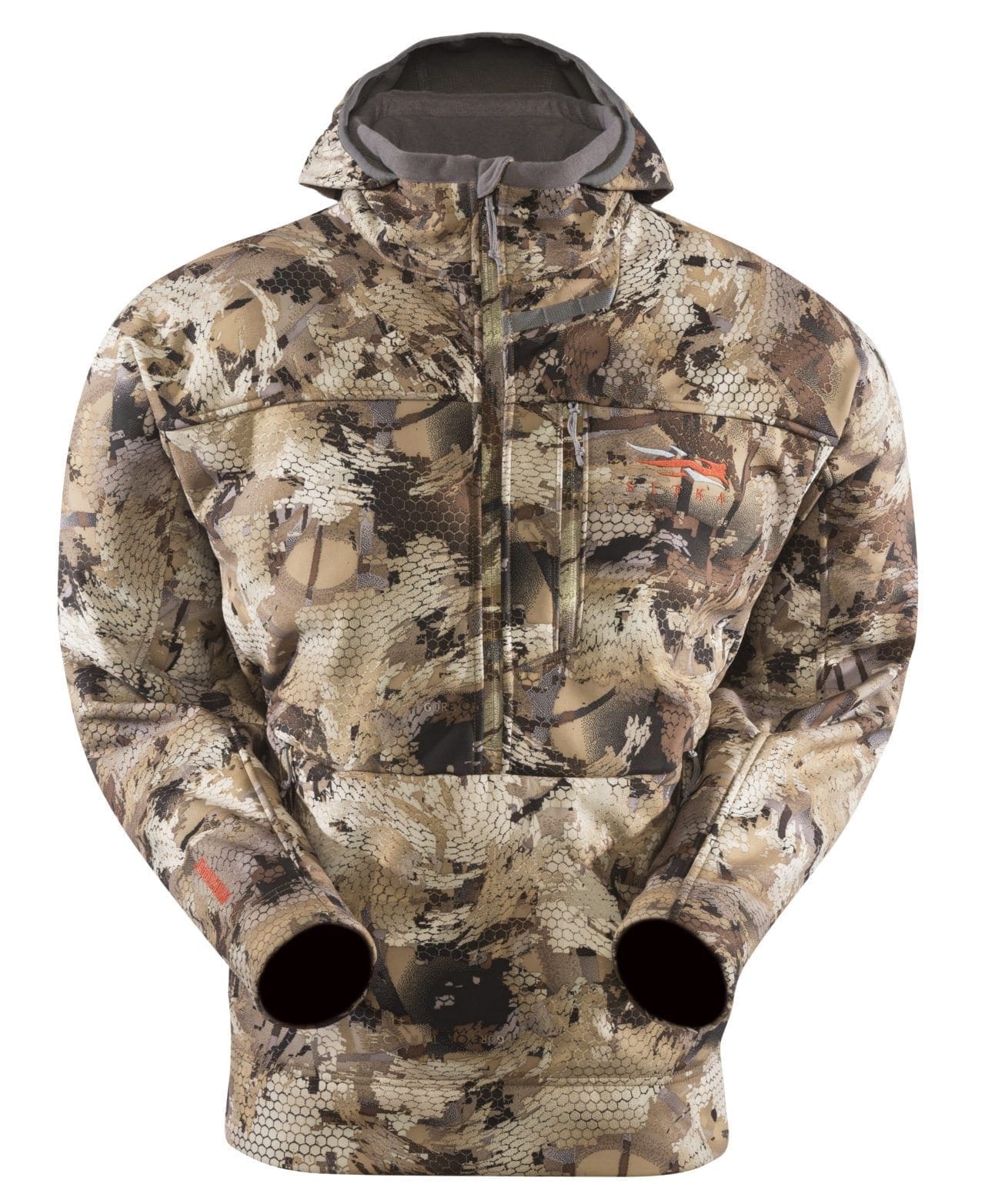Chestnut Hill Outdoors Spring Fruit

Nutritional needs of wildlife vary throughout the year, and to better meet those changes, it’s essential to plant a variety of hard and soft mast-producing trees and shrubs. Hard mast addresses the late season, but spring and early summer are also important nutritional periods that are best addressed by planting soft mast. Chestnut Hill Outdoors offers an array of soft mast producers that are ideal for filling gaps in the nutrition calendar.
Mulberries
Mulberries are among the first shrubs to bear fruit in spring, as early as April and May in the deep south, and early June further north – peak periods for young and growing wildlife. Chestnut Hill Outdoors offers several varieties. Everbearing mulberry (Morus rubra), which includes black, white and native red varieties, grows in a bush-like form providing an abundance of both fruit and cover – another important component of wildlife habitat. Black Mulberry (Morus nigra) grows in a taller tree form and produces what many consider to be the highest quality mulberry fruits.
Plums
Chestnut Hill Outdoors also offers a pair of native plums. American plum (Prunus americana) produces abundant early summer fruit and creates a thicket of cover for many wildlife species. Its wide temperature tolerance range makes it a great option in most zones. Chickasaw plum (Prunus angustifolia) also does well in all but the coldest zones and forms suckers that create thickets wildlife use for bedding and security cover.
Plant Hardiness Zones
When selecting stock, it’s important to choose plant species that are specifically adapted for the climate in your area. One of the best tools for determining this is the USDA Plant Hardiness Zone Map. It divides the nation into 10-degree F zones based on average annual minimum winter temperatures. These Zones or Regions are then used to describe the range in which plants are adapted to and can be grown.
Use the link to plug in the zip code you will be planting.
USDA Plant Hardiness Plant Zone Map Link
Spring fruit helps fill gaps in the nutritional calendar to ensure wildlife get what they need when they need it. Mulberries and plums help address tremendous nutritional stress on nursing does, and bucks as their antler growth rates increase. They also provide forage and cover for rapidly growing young wild turkeys, grouse, pheasants, quail and other small game birds and mammals.
Chestnut Hill Outdoors is more than just a nursery. In order to ensure you receive the maximum benefit from their products, they also provide sound advice and instruction on proper planting and care. And they ensure the plants you receive are suited to your regional climate. For more on the varieties listed above and all Chestnut Hill Outdoors products and how to care for them, visit ChestnutHillOutdoors.com, or call (855) 386-7826.
Chestnut Hill is the best place for you to purchase your food plot and deer attractant plants because they offer a large selection, their plants are specifically bred to attract deer, and they offer customers different sized plants at different levels of growth.
For more information, please visit
WWW.CHESTNUTHILLOUTDOORS.COM



